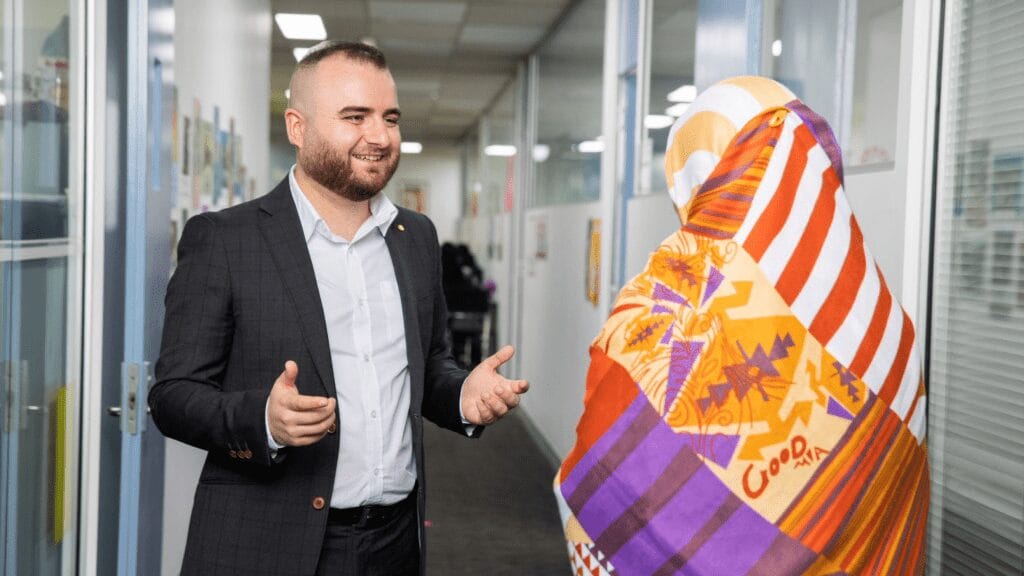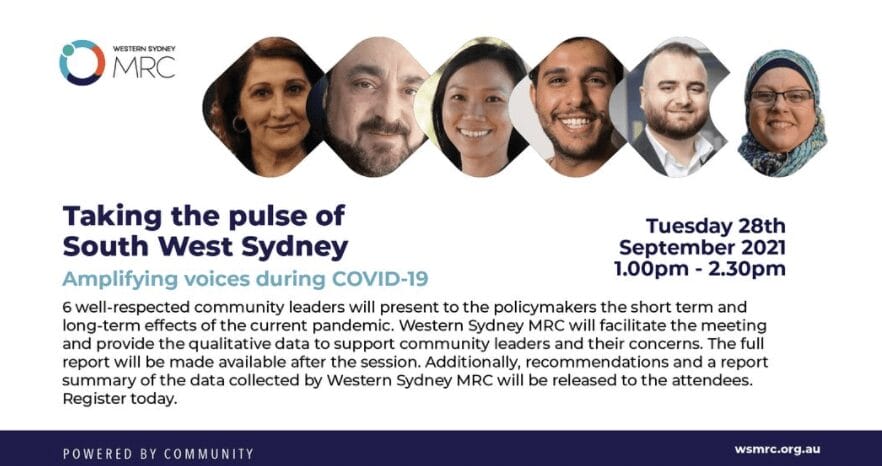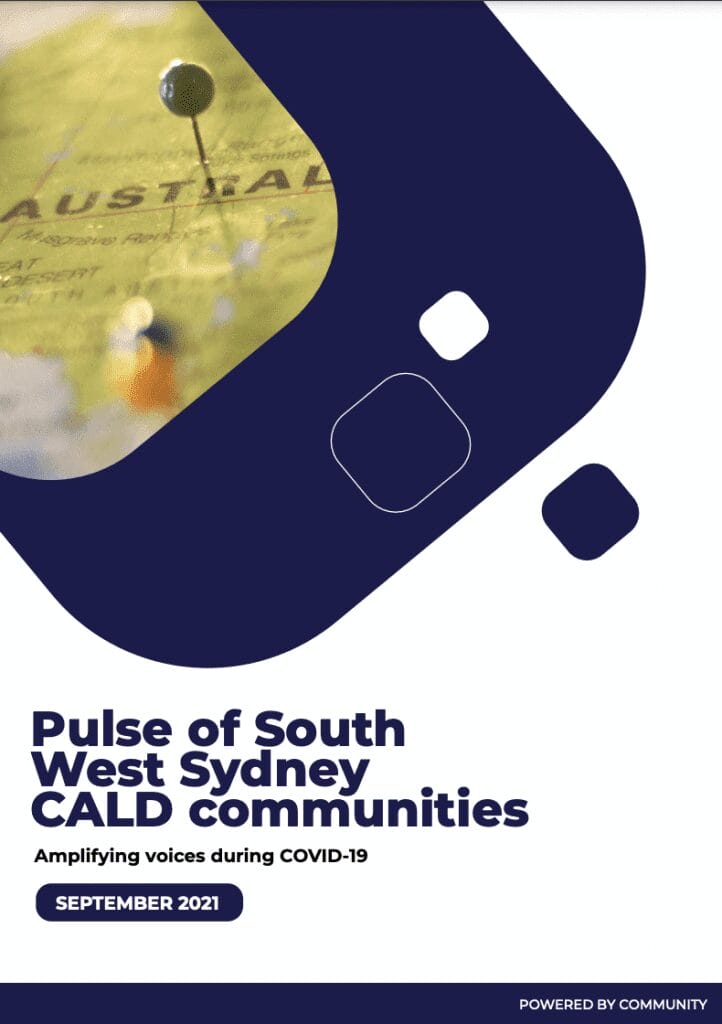Basim’s finger on the Pulse during COVID-19

Navitas Skilled Futures Stakeholder Engagement Manager Basim Shamaon was one of six community leaders who presented to policymakers this week at the launch of a report looking into the effects of the COVID-19 pandemic on Culturally and Linguistically Diverse (CALD) communities in South Western Sydney.
The Pulse Report, by the Western Sydney Migrant Resource Centre (MRC), seeks to amplify the voices of these communities, presenting insights and actionable recommendations for now and the future, to manage the impacts of the pandemic and plan for recovery.
The report was based on a survey of 155 community members from diverse backgrounds, with areas of concern including mental health and wellbeing, employment, families, aged care and social cohesion.

Basim’s presentation focused on mental health and wellbeing, which, along with distrust, was the biggest issue stemming from the lockdown. Basim said it needed to be addressed as it had wider implications for those affected.
“Mental health has always been a stigma in the community, especially in the CALD communities. It is not easy for refugees coming from war-torn countries and settling in a new country without going through some mental health issues,” Basim said.
“Imagine someone who lived in a war zone, escaped for a new life, came to Australia so excited and all of a sudden got hit with the pandemic. Lockdown was announced, rules and orders constantly changing, police and army in the streets, people emptying shelves and, as we remember, some people fighting over toilet paper. All these things have triggered the trauma and for some it became worse.”
The report found more than half (53%) of the people surveyed stated they could not cope with the restrictions; causing stress, anxiety, depression and sadness. The sudden shift to online learning and having all family members in the home at the same time exacerbated the stress for CALD families with limited digital access and literacy.
Respondents named five categories that contributed to their stress: family disconnection; isolation; lockdown; online learning; and balancing work and life.
“Some insights of the report show the disconnections arising from the stay-at-home orders that have been sudden and severe,” Basim said.
“In addition to the physical disconnection from extended family members, regular service providers and everyday activities, there has also been a simultaneous mental disconnection leading to social isolation, burnout, and stress.”
The stay-at-home orders, especially in the early days of lockdown and increased police visibility in the SWS LGAs, significantly impacted CALD community members’ trust in government and affiliated institutions.
More than half of survey respondents (53%) stated a preference for health communications that are one-on-one rather than through mass/social media channels.
“Connecting with CALD communities, especially regarding COVID-19 health messaging, requires multilingual information via trusted community-based sources in personable formats,” Basim said.
Basim said it was vital to listen to the community to move forward constructively, particularly with the youth, who were hardest hit.
“One thing we must be aware of is that the decision-makers in general are normal human beings just like us. They too can struggle and face challenges in ensuring all community issues and concerns are addressed,” he said.
“In saying that, having the right balance is key here, and if we all work together I’m sure we can achieve a common goal, that is, to defeat COVID and the associated issues that it brings with it, such as mental health issues. Indeed, there is more to be done to address the challenges associated with mental health.”

You can view the full report here: https://hubs.ly/H0Ygfvf0
If you, or anyone you know, needs help contact Lifeline on 13 11 14.
Notice: On 1 December 2021, Navitas English changed its name to Navitas Skilled Futures. This name change reflects our programs, the focus of our work, and our positive impact on the people we serve. Find out more here.

